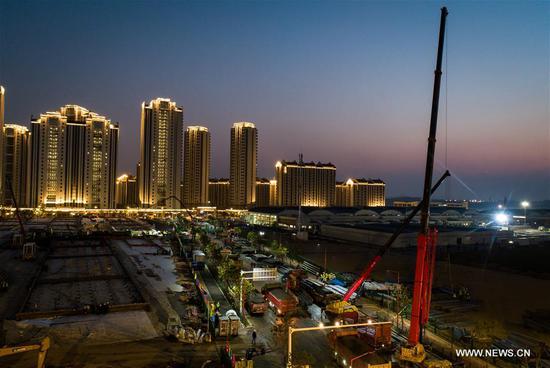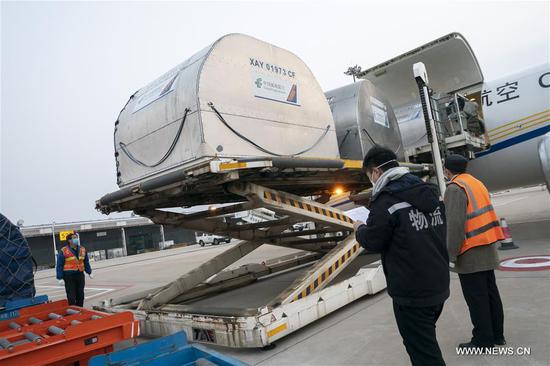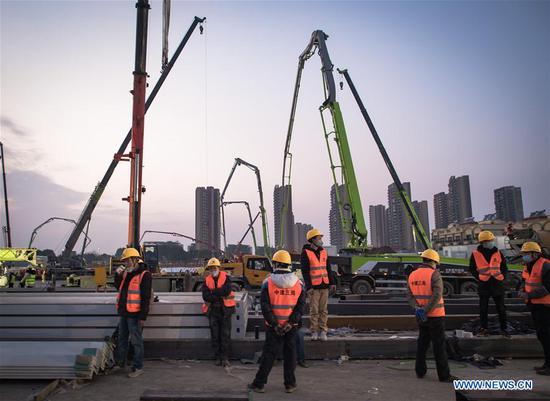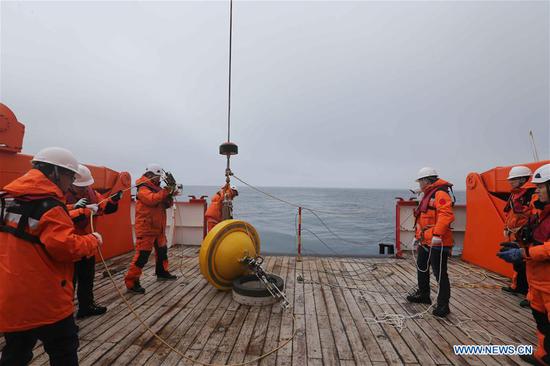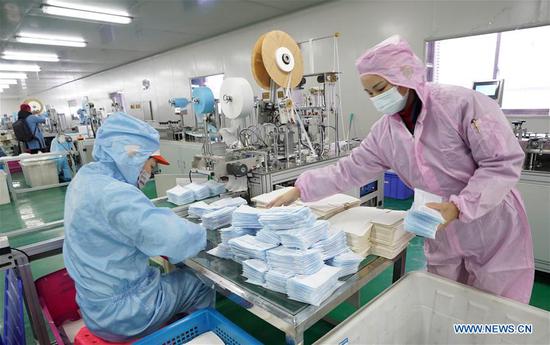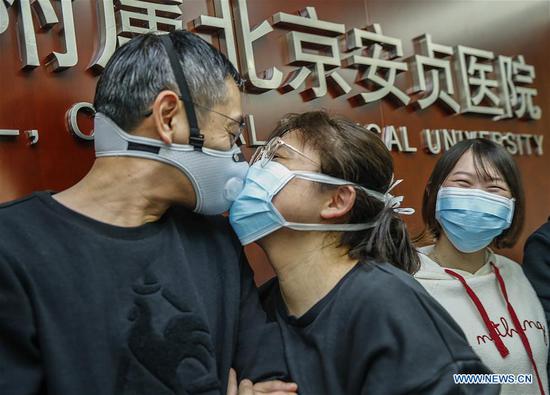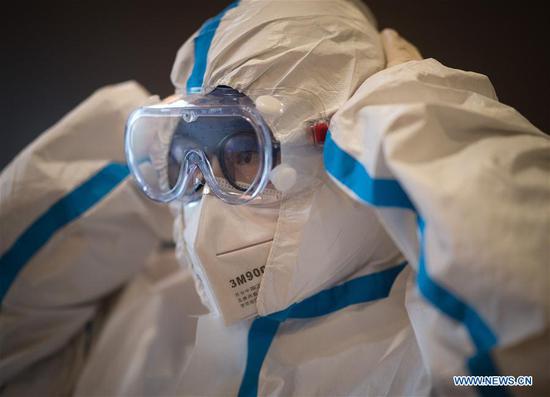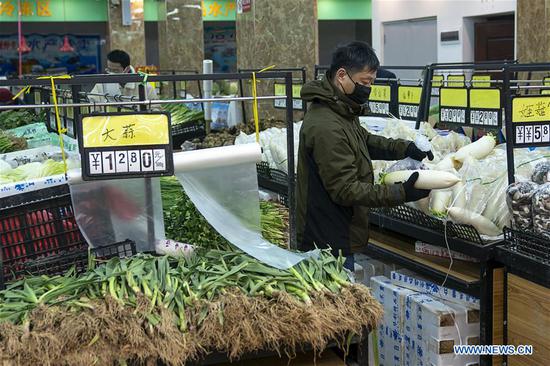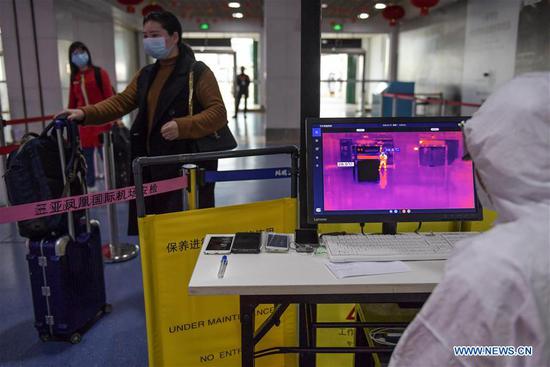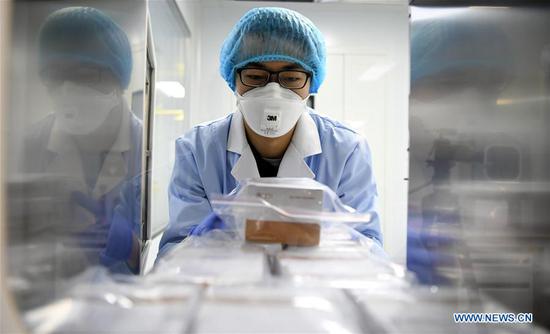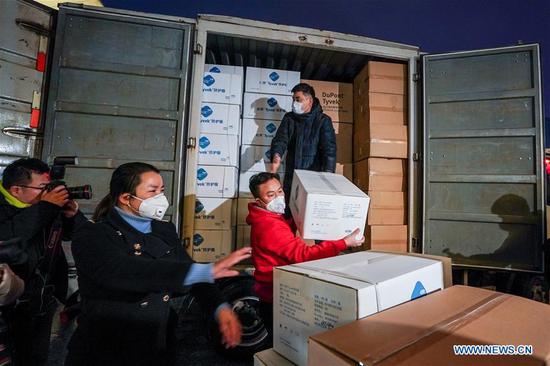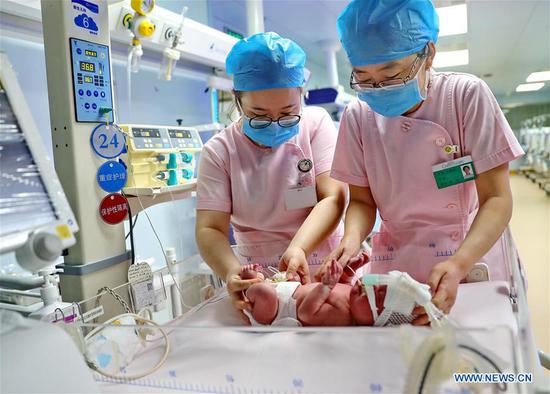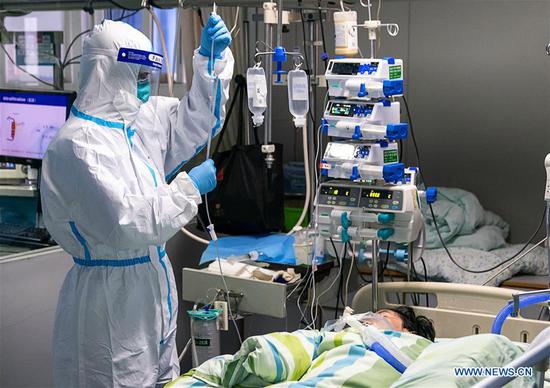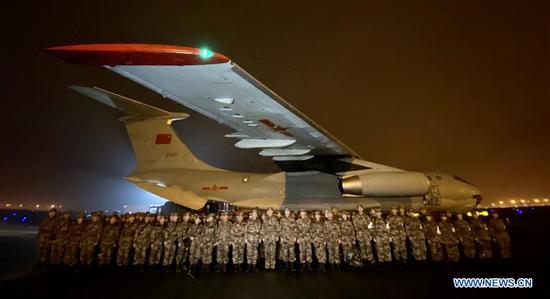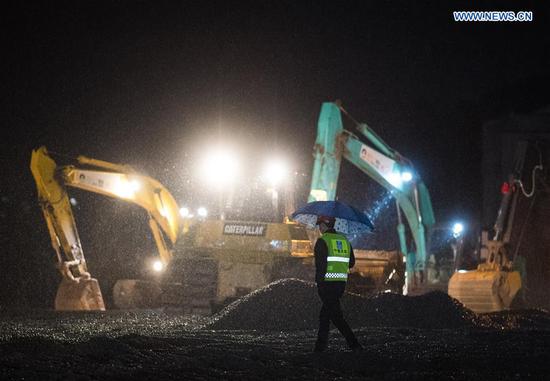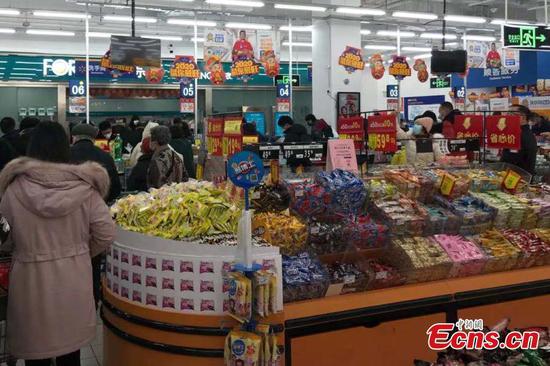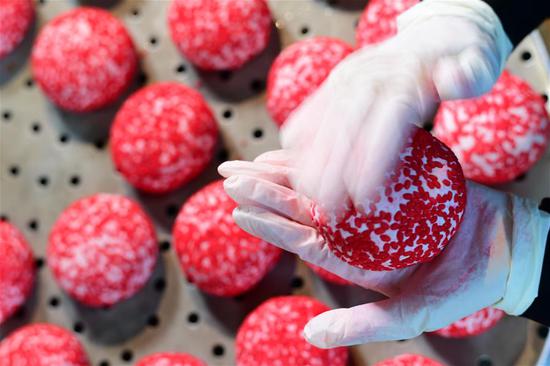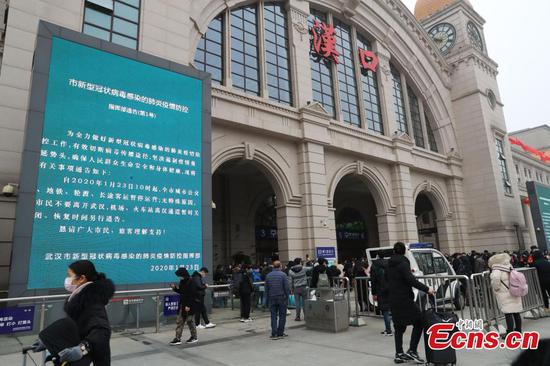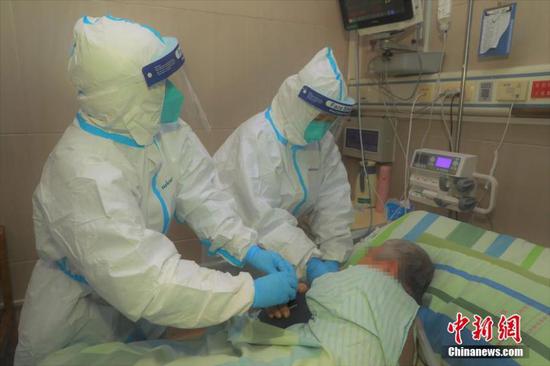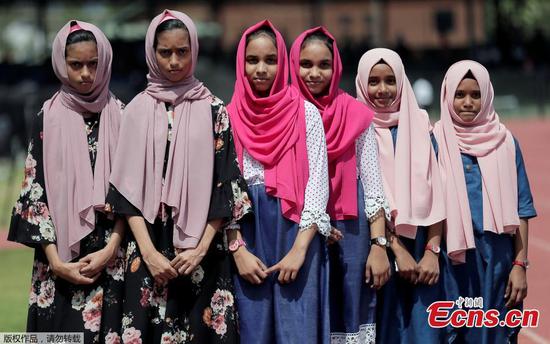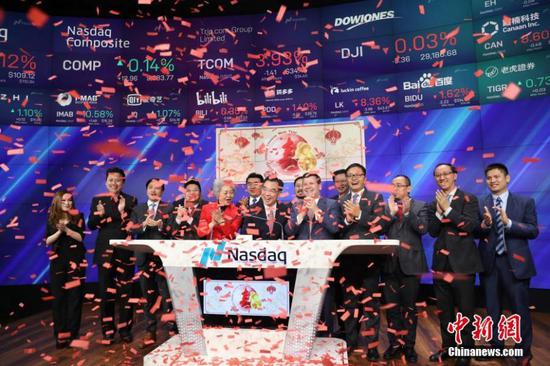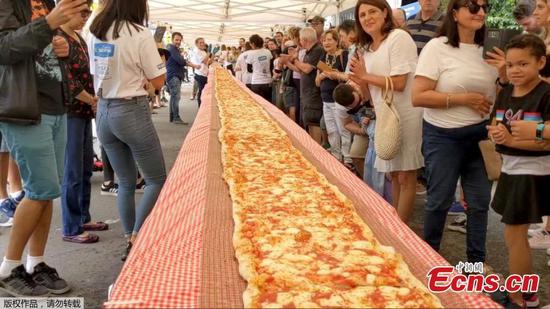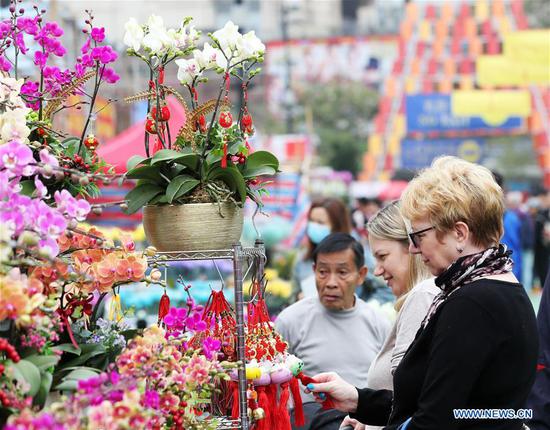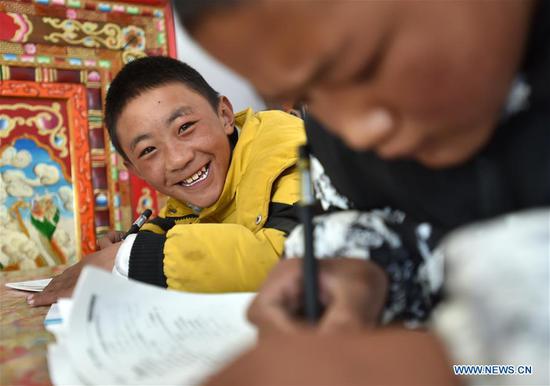
A diner sits at a McDonald's quick service restaurant in Beijing on Friday. (Photo by Wang Jing/China Daily)
Retail businesses across the country have been responding to the fast-spreading coronavirus with positive measures in stores and online, as experts predict the impact to be temporary.
The ongoing novel coronavirus had so far infected 9,692 on the Chinese mainland and the death toll hit 213 as of early Friday, affecting retail businesses that had high expectations for the Lunar New Year holiday-a peak season for shopping, catering and tourism.
Xu Gao, chief economist with Bank of China International Ltd, said it is necessary for retailers with high footfalls to close stores or shorten operational hours due to the coronavirus outbreak.
But the impact on the retail sector will be in the first quarter and is expected to be short lived.
"The coronavirus outbreak will alter the format and location of consumption and postpone demand," said Xu.
"But consumption needs are merely being curbed during the outbreak," said Xu."Once the virus starts to retreat, the rebound is expected to be firm in the following three quarters." For example, restaurants have seen few customers lately but eating at home is solid, said Xu.
Jason Yu, general manager of Kantar Worldpanel China, said the impact on the retail sector during the Spring Festival holiday and first quarter period will be mostly visible in the catering, tourism and department store sectors. He said the low traffic to commercial properties is expected to hurt businesses in the outdoor catering sector such as Starbucks and McDonald's.
Starbucks, the leading coffee house operator in China, has closed more than half of its stores in the country. The company has about 4,300 stores in China.
Starbucks CEO Kevin Johnson said in terms of earnings, the company remains optimistic and committed to the long-term opportunities in China.
"We continue to monitor and modify the operating hours of all of our stores in the market in response to the coronavirus outbreak. We expect this to be a temporary situation," said Johnson.
McDonald's China has closed its restaurants in Hubei province. The fast-food chain has about 3,000 outlets still in operation in China, said McDonald's President and CEO Chris Kempczinski during a call with analysts on Wednesday.
Chicago-based McDonald's said it is providing meals to healthcare workers in hospitals in China, while also helping get medical screenings for customers who come to restaurants. The fast-food chain has launched no-touch delivery nationwide where customers can choose to receive meals at designated positions, without face-to-face contact with the delivery personnel.
Meanwhile, the fact that people are staying at home rather than traveling, to limit their chances of coming into contact with the disease, has boosted consumption, generating more business for general merchandise retailers.
Walmart China said it has seen a sharp rise in the number of visitors to its brick-and-mortar stores during the Spring Festival holiday period.
Also, due to the sudden rise in demand for masks, liquid soap and sanitizing products, Walmart has increased its procurement in these categories within the country and expanded buying volumes from overseas.
Walmart China has assigned divisions in the US and Japan to supply consumers in China through cross-border e-commerce.
However, Yu said the purchases of food and sanitizing products will not offset the negative impact on other merchandise including home appliances, apparel and gifts.
He said the outbreak is expected to increase market share for e-commerce players and force retailers to roll out new measures in the challenging times.
Manufacturers of products related to the emergency have geared up their production capacities to facilitate the fight against the virus.
Reckitt Benckiser, which makes leading global antibacterial and disinfectant brands Dettol and Lysol, is working with the healthcare authorities concerned in China to provide essential disinfectant products and funds to combat the outbreak of the coronavirus.
Master Kong of the Tingyi Cayman Islands Holding Corp, China's largest instant noodle maker, has speeded up manufacturing to 4 million packets a day to produce sufficient instant noodles for those living in Hubei province, the center of the outbreak, said Ning Gang, head of Master Kong's factory in Tianjin.









